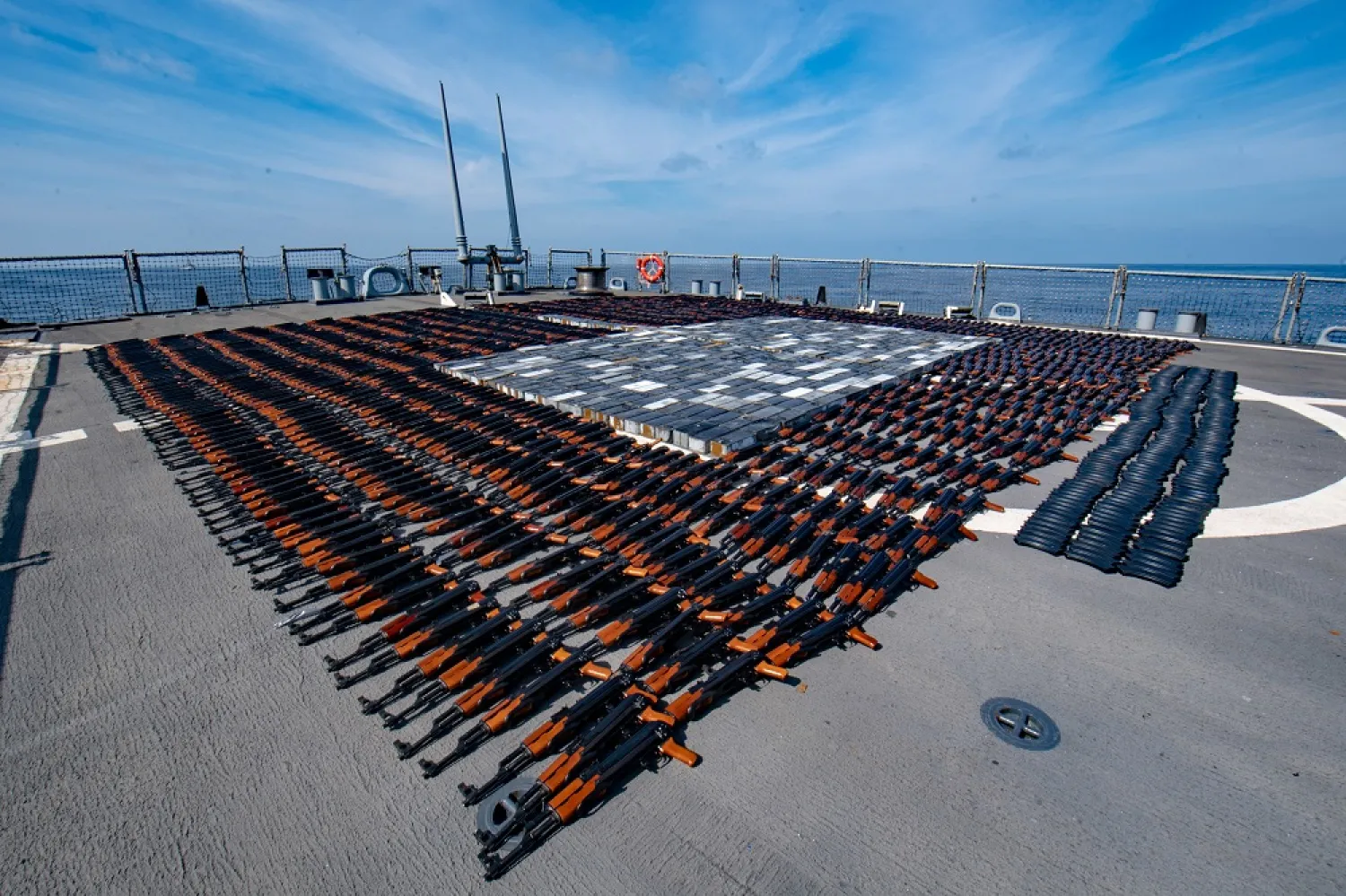The US Navy said it seized Monday a large cache of weapons and ammunition being smuggled by a fishing ship from Iran, likely bound for Yemen in the North Arabian Sea.
The 5th Fleet ships seized approximately 1,400 AK-47 assault rifles and 226,600 rounds of ammunition from a stateless fishing vessel during a flag verification boarding following customary international law.
The illicit weapons and ammunition were later transported to the guided-missile destroyer USS O'Kane 77, awaiting final disposition.
The Navy issued a statement explaining that the stateless vessel was assessed to have originated in Iran and transited international waters along a route historically used to traffic weapons unlawfully to the Iran-backed Houthi militias in Yemen. The direct or indirect supply, sale, or transfer of weapons to the Houthis violates UN Security Council Resolutions and US sanctions.
It pointed out that the vessel's five crew members identified themselves as Yemeni nationals and will be returned to Yemen. After removing the crew and illicit cargo, "US naval forces determined the stateless vessel was a hazard to navigation for commercial shipping and sank it."
The statement added that: "US naval forces regularly perform maritime security operations in the Middle East to ensure the free flow of legitimate trade and to disrupt the transport of illicit cargo that often funds terrorism and other unlawful activity."
The US Navy warships operating in the US 5th Fleet region have seized approximately 8,700 illicit weapons in 2021. The guided-missile cruiser USS Monterey (CG 61) took dozens of advanced Russian-made anti-tank guided missiles, thousands of Chinese Type 56 assault rifles, hundreds of PKM machine guns, and sniper rifles rocket-propelled grenade launchers from a stateless vessel transiting the North Arabian Sea in May.
In February, the guided-missile destroyer USS Winston S. Churchill (DDG 81) seized a cache of weapons off the coast of Somalia, including thousands of AK-47 assault rifles, light machine guns, heavy sniper rifles, rocket-propelled grenade launchers, and crew-served weapons. The inventory also included barrels, stocks, optical scopes, and weapon systems.
The US 5th Fleet area of operations encompasses approximately 2.5 million square miles of water. It includes the Arabian Gulf, Gulf of Oman, Red Sea, parts of the Indian Ocean, and three critical choke points at the Strait of Hormuz, Suez Canal, and Strait of Bab al-Mandeb.
Meanwhile, the Yemeni government urged the international community and the Security Council permanent members to carry out their responsibilities and pressure Iran to stop smuggling weapons to the Houthis, which violates the UN Charter and international resolutions pertaining to the Yemeni crisis. It also called for classifying the Houthis as a terrorist group.
Minister of Information Muammar al-Eryani indicated that the US Navy's announcement of the seizure of the weapons shipment represents a clear Iranian challenge to the will of the international community.
In a statement carried by the Yemeni News Agency (Saba), Eryani stated that the Iranian regime's smuggling of weapons to the Houthi militias is an extension of its "continuous aggression against Yemen since the start of the September 2014 coup", noting that Tehran continues to implement its "destructive agenda" and its expansionist project in the region.
Eryani stressed that the Iranian regime has played a significant role in undermining efforts to bring peace to Yemen.









